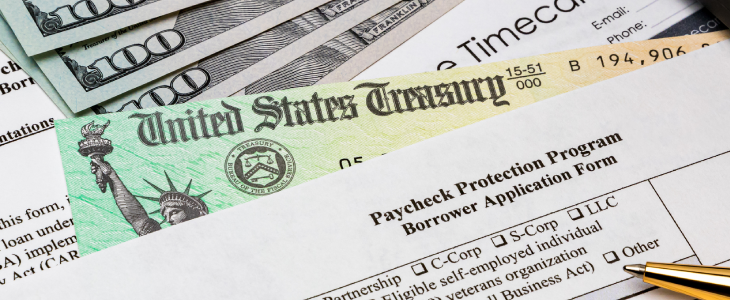If you’ve been charged with PPP fraud, understanding the intricacies of the allegations and their potential implications is crucial. The Paycheck Protection Program (PPP) was designed to assist businesses during challenging economic times, but accusations of misuse can lead to severe consequences. It’s essential to grasp both the nature of these charges and the available defenses. Engaging with legal guidance promptly can provide clarity and direction in this challenging scenario.
At Federal Criminal Defense Attorneys of Michigan, we have extensive experience defending clients against complex federal charges, including PPP fraud. Our dedicated team will thoroughly investigate your case, analyze the evidence, and work to uncover any weaknesses in the prosecution’s claims. With a deep understanding of federal laws and the ability to negotiate or litigate on your behalf, we are committed to protecting your rights and your future.
What Is the Paycheck Protection Program?
The Paycheck Protection Program (PPP) was a significant initiative introduced by the U.S. federal government as part of the Coronavirus Aid, Relief, and Economic Security (CARES) Act in 2020. Its primary objective was to provide financial assistance to small businesses adversely impacted by the COVID-19 pandemic. By offering forgivable loans, the PPP aimed to help these businesses maintain their workforce and cover essential operational costs.
To qualify for loan forgiveness under the PPP, businesses had to utilize a majority of the loan amount for payroll purposes. The remaining funds could be allocated to other approved expenses such as rent, mortgage interest, and utilities. This program not only aimed to stabilize the economy by safeguarding jobs but also sought to provide a cushion to businesses grappling with sudden downturns in revenue due to the pandemic.
Common Types of PPP Fraud
- Misrepresentation of Payroll and Employee Numbers: Some businesses inflated the number of their employees or exaggerated payroll expenses. By doing this, they aimed to secure larger loan amounts than they were eligible for.
- Falsifying Business Existence or Operations: There have been instances where individuals created fictitious businesses or claimed non-existent operations to tap into PPP funds. Using fabricated documents or false information, they applied for and sometimes received loans.
- Unauthorized Use of Funds: The PPP funds were designated for specific business expenses, primarily payroll. However, some recipients diverted these funds for unauthorized personal or business uses, such as buying luxury items or investing in unrelated ventures.
- Multiple Loan Applications: Some entities or individuals fraudulently applied for multiple PPP loans, either through different businesses or by using varied identities. The intent was to illicitly gain more funds than a single business or individual was entitled to.
Consequences of PPP Fraud at the Federal Level
At the federal level, PPP fraud carries severe consequences, reflecting the government’s intent to ensure the program’s integrity and its commitment to penalize those who exploit the system. When individuals or businesses are found to have defrauded the PPP, they can face substantial repercussions. Criminal charges can include wire fraud, bank fraud, making false statements to a federal agency, and conspiracy to commit fraud. A conviction can result in imprisonment, significant fines, and mandatory restitution. Additionally, entities found guilty of PPP fraud might also be subjected to civil actions by the federal government. Such legal suits can lead to financial judgments requiring the repayment of the misappropriated amounts with added penalties.
Defenses to PPP Fraud
Defending against PPP fraud accusations involves a combination of factual rebuttals and legal arguments. Here are some potential defenses:
- Lack of Intent: Fraud generally requires an intent to deceive. If it can be proven that any misrepresentations or inaccuracies were unintentional or arose from genuine misunderstandings, this can be a viable defense. In addition, if the accused relied on the guidance of professionals, such as accountants or attorneys, when applying for the PPP loan, and it was this advice that led to errors or discrepancies, this may mitigate their responsibility.
- Documentation and Evidence: Providing clear evidence and documentation that supports the legitimacy of the claims made in the PPP application can serve as an effective defense. This might include payroll records, tax filings, and other financial statements which can validate the information provided.
- Insufficient Evidence: In many legal proceedings, the burden of proof lies with the prosecution. For a successful defense against PPP fraud allegations, highlighting the lack of concrete evidence or demonstrating that the evidence presented is inadequate to establish guilt can be pivotal.
Steps to Take If Accused of PPP Fraud
If accused of PPP fraud, it’s imperative to act swiftly. First, refrain from making any statements or admissions to authorities without legal representation. Immediately seek the counsel of an experienced federal criminal attorney who specializes in financial crimes or fraud cases. Gathering all relevant documentation related to your PPP loan application and usage can assist in building a strong defense. Lastly, ensure open and consistent communication with your legal team to strategize an effective response to the allegations.
Importance of Contacting a Skilled Michigan PPP Fraud Criminal Defense Attorney
In facing allegations of PPP fraud or any other legal challenges, having skilled legal representation can make a significant difference in the outcome. The lawyers at the Federal Criminal Attorneys of Michigan possess the knowledge and dedication to defend your rights and ensure the best possible resolution. If you or your business is facing such accusations, don’t hesitate—reach out to us today for a consultation and let us advocate on your behalf.
Federal Criminal Attorneys of Michigan, rooted in Detroit, assists clients with Paycheck Protection Program (PPP) fraud charges throughout Lansing, Grand Rapids, Ann Arbor, Flint, and all of Michigan.
